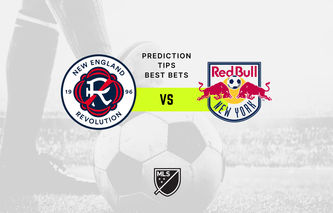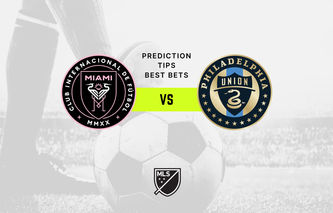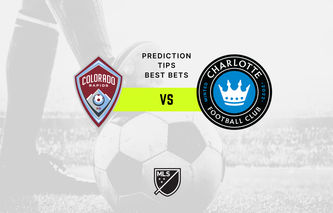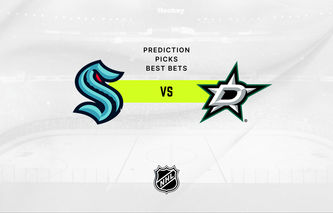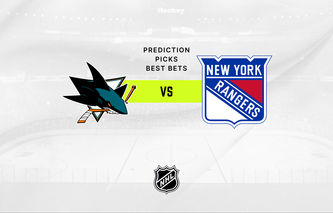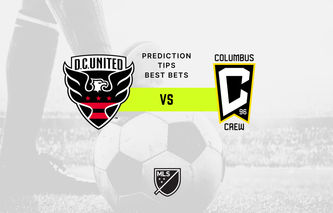One of the most popular and easy-to-grasp betting options available at online betting sites is the over/under bet. As a bettor, gaining an understanding of over/under betting is essential as this is a standard bet that can be applied to almost any sport.
Over/under, also known as "totals", is a type of bet where you predict whether a specific statistic for a game – usually the combined score of both teams – will be higher or lower than a predetermined value set by oddsmakers.
The simplicity and versatility of over/under betting make it a favorite among anyone who bets on sports and does not want to invest too much time in research and complicated betting combinations.
In this article, you will learn more about this popular way to bet, including how it works, some examples, and strategies to improve your chances of winning when you bet the total on different popular sports.
As you become more knowledgeable and confident about popular wagering options in sports betting, over/under betting can be a valuable addition to your sports betting toolkit.
What Does Over/Under Mean in Sports Betting?
An over-under bet, also known as a total points bet, is a type of wager in sports betting where you predict whether a specific statistic for a game, like the final score, will be higher or lower than a quoted value provided by the sportsbook.
As we are going to see throughout this guide, this type of bet is popular for its simplicity and applicability to various sports - although it can be a tricky option for those sports bettors who prefer low-scoring sports like soccer.
Over/Under Betting Explained
In an over-under bet, the sportsbook sets a total value for a specific aspect of a game, like points scored. Your job is to decide whether the actual total will be over (higher) or under (lower) that set value.
For example, if a sportsbook sets the total points scored in a football game at 42.5, you can bet on whether the combined score of both teams will be over 42.5 points or under 42.5 points.
Points Totals Explained
The main focus of over-under betting is the total of points scored during the game. For example, in a basketball game, if team A scores 100 points and team B scores 90 points, the total points scored is 190 points.
If the sportsbook set the over-under at 185.5 points, a bet on the over would win because the total points scored exceeded the set value, while a bet on the under would lose.
What If The Set Total Is A Whole Number?
Occasionally, sportsbooks may set an over-under value as a whole number instead of using a decimal value. In this case, there is a possibility that the actual total matches the set value, resulting in a push or tie. If this happens, the most reliable sportsbooks will usually refund your bet.
For example, if the over-under for a soccer match is set at 2 goals and the actual total number of goals scored is 2, both over and under bets are considered a push, and bettors will get their money back.
Types of Over-Under Bets
Over Under 0.5
When placing an Over Under 0.5 bet, you are predicting whether the total number of points, goals, or another relevant statistic will be more or less than 0.5.
In this type of bet, you would typically focus on events with low-scoring outcomes, such as soccer or hockey games. For example, if you believe there will be at least one goal scored in a soccer match, you would place an Over 0.5 bet.
Conversely, if you believe there will be no goals scored, you would place an Under 0.5 bet.
Over Under 1.5
The Over Under 1.5 bet is similar to the 0.5 bet, with the difference being that the total is now set at 1.5 points. This type of bet is common in sports with a moderate scoring frequency.
For instance, if you think a soccer game will have at least two goals, you would place an Over 1.5 bet. If you believe there will be one goal or none, you would place an Under 1.5 bet.
Over Under 2.5
An Over Under 2.5 bet deals with total points or goals (or other relevant statistics) set at 2.5 and it is frequently seen in sports with higher-scoring outcomes.
To place this bet, you would predict whether the total points scored in a game will be over or under 2.5. For example, if you believe there will be at least three goals in a soccer match, you would place an Over 2.5 bet. If you think there will be two goals or fewer, you would place an Under 2.5 bet.
Keep in mind that the key to placing an over-under winning bet lies in your ability to analyze and predict the total number of points, goals, or other relevant statistics for a specific game or event.
As you gain more experience and knowledge when you bet on the total, you can start tailoring your bets accordingly, focusing on the sports and events that match your strengths and interests.
Over Under Strategies in Betting
The Best Sports for the Over-Under Betting Strategy
When it comes to the over-under betting strategy, different sports yield unique opportunities, offering various levels of unpredictability and scoring systems.
The best sports for this strategy typically include high-scoring matches such as football, basketball, and hockey. In contrast, lower-scoring sports like tennis and soccer can prove challenging due to line-setting inaccuracies, limiting bettors' potential gains.
Over Under Betting in Baseball
In baseball, one common over/under bet involves predicting the total number of runs scored by both teams in a game. Factors such as weather conditions, pitching matchups, and team offensive production can be vital indicators to consider when betting on baseball totals.
Games with strong pitchers can lead to low-scoring games, making the under bet a potentially profitable option when you consider betting on totals.
Over Under Betting in Football
In football, over under betting typically revolves around the total points scored by both teams during an NFL game.
While bettors can focus on factors such as offensive strength, defensive capabilities, and weather conditions, understanding the betting market can also be essential.
By staying in tune with line movements and public sentiment, you can potentially identify profitable opportunities in football betting.
Over Under Betting in Basketball
When you bet on an NBA game or college basketball, each game's total points usually represent the primary betting target.
A well-rounded betting strategy for sports like basketball might involve considering team defensive stats, offensive tempo, and recent scoring trends.
Additionally, player matchups and injuries can significantly impact the game's pace, making them valuable factors to account for when placing your bets.
Over Under Betting in Hockey
Hockey over/under-betting targets the combined score of both teams in a game. Similar to football and basketball, various factors might guide your betting decisions, such as recent goal-scoring trends, goalie performance, and team defense.
Being aware of crucial injuries and rest schedules for goaltenders may also provide an edge in predicting over-under outcomes.
Over Under Betting in Tennis
Although tennis can be a lower-scoring sport compared to others, over under betting still holds potential if you enjoy the action at the best tennis betting sites.
One common bet involves predicting the total number of games in a match. Analyzing head-to-head matchups, recent form, and surface preferences can help bettors make informed decisions. A dominant player in a lopsided match could result in a relatively quick match, favoring the under bet in games.
Over Under Betting in Boxing UFC
In combat sports like boxing and UFC, over under betting usually involves predicting the total number of rounds.
Key factors to consider include a fighter's knockout power, stamina, and past performance. Matches featuring aggressive fighters with strong finishing abilities could lean toward fewer rounds, favoring the under bet.
Over Under Betting in Soccer
Soccer's lower-scoring nature can make over under betting challenging, but this bet is also popular on MLS games and still offers opportunities.
Bettors can predict the total number of goals scored in a match by analyzing factors such as offensive strength, defensive records, and recent form. Matches featuring high-scoring teams might favor the over bet, while defensive battles could lead to an under result.
Over Under Betting in Golf
In golf, over under betting focuses on predicting a golfer's total score in a tournament. Before placing your bet, consider factors such as course history, recent form, and weather conditions.
Meticulous research and attention to detail can help you become a more informed bettor, identifying potential inefficiencies in the betting market and seizing opportunities accordingly.
Advantages and Disadvantages of Over Under Betting
Advantages
One of the main advantages of over under betting is its simplicity. You only need to decide whether the total score will be higher or lower than the predicted value.
This type of bet can be applied to almost any category in various sports, such as the number of points scored, goals, assists, strikeouts, or laps led.
Another advantage is that you don't need to choose a side or team to win the game. This makes over under betting a perfect option for neutral fans.
You can focus on the performance of the game rather than its outcome, which can provide a more enjoyable and less stressful betting experience.
Additionally, over under bets usually offer even money payouts, which means that the odds are often balanced between the over and under options. As a result, if you win your bet, you can expect a solid payout, depending on the amount you wagered.
Much like moneyline betting and spread betting, a bet like this one allows you to apply your knowledge of the sport and its teams, players, and overall dynamics to make informed betting decisions.
The more you understand about the sport, the better your chances of predicting the total accurately.
Disadvantages
One major disadvantage of over under betting is that it can be challenging to predict the final total score, especially in unpredictable or highly competitive matches in sports like football and college football.
Although you may have extensive sports knowledge and data available, external factors such as weather conditions, player injuries, and coaching strategies can influence the final result.
You also need to keep in mind that betting sites are usually well-prepared and have conducted thorough research on the teams and players involved in the game. This means that the predicted over under line is generally quite accurate, which might make it more difficult for you to gain an edge on the bet.
Over under bets typically have lower payout rates compared to other types of bets, such as parlays or props. Even though the odds are generally even, the potential payout might be less attractive to some bettors who are looking for higher returns on their wagers.
Examples of Over Under Bets
NFL Over Under Bet Example
In an NFL over-under bet, you will be wagering on the total number of points scored in a game. Sportsbooks set a line for the combined score, and you decide whether you think the actual total points will be over or under that number.
For example, in a match between the New England Patriots and the Dallas Cowboys, the top NFL betting sites might set the line at 47.5 points. If you believe the final score will be 28-24, totaling 52 points, you would bet the over.
At the same time, if you think the final score will be 24-17, totaling 41 points, you would bet the under. Payouts will depend on the odds offered by your chosen sportsbook.
NBA Over Under Bet Example
NBA over-under betting works similarly to other sports, with bettors predicting the total points scored in a game.
Say NBA betting sites set the line at 215.5, and the game involves the Los Angeles Lakers and the Boston Celtics. You choose whether the final combined score will be over or under the set total.
If the game ends at 110-100, for example, the total points equal 210, so an under bet would win. Adjust your original bet based on factors like offensive and defensive stats or player injuries to increase your chances of success.
NHL Over Under Bet Example
Over-under bets in the NHL work in the same manner as other sports, with NHL betting websites setting a line for the total number of goals in a particular game.
Your goal as the bettor is to predict whether the final combined score will be above or below that line. For instance, if the line is set at 5.5 goals for a game between the Chicago Blackhawks and the New York Rangers, a final score of 3-2 would equal 5 total goals. An under bet would win in this case, while an over bet would lose.
MLB Over Under Bet Example
Major League Baseball (MLB) over-under betting involves wagering on the total number of runs scored by both teams in a game.
Imagine the best MLB sportsbooks set the line at 8.5 runs for a match between the New York Yankees and the Houston Astros. You need to decide whether the number of runs scored will exceed or fall short of the line. If the final score is 5-4, totaling 9 runs, an over bet would win. Conversely, if the final score is 4-3, equaling 7 runs, an under bet would win.
MLS Over Under Bet Example
In Major League Soccer (MLS) over-under betting, you predict the total number of goals scored by both teams during a match.
If the soccer betting sites set the line at 2.5 goals for a game involving LA Galaxy and New York City FC, you bet on whether the final combined score will be more or less than 2.5. For instance, a final score of 1-1 is a total of 2 goals, which means an under bet wins, while a score of 2-1 would result in an over bet paying out.

